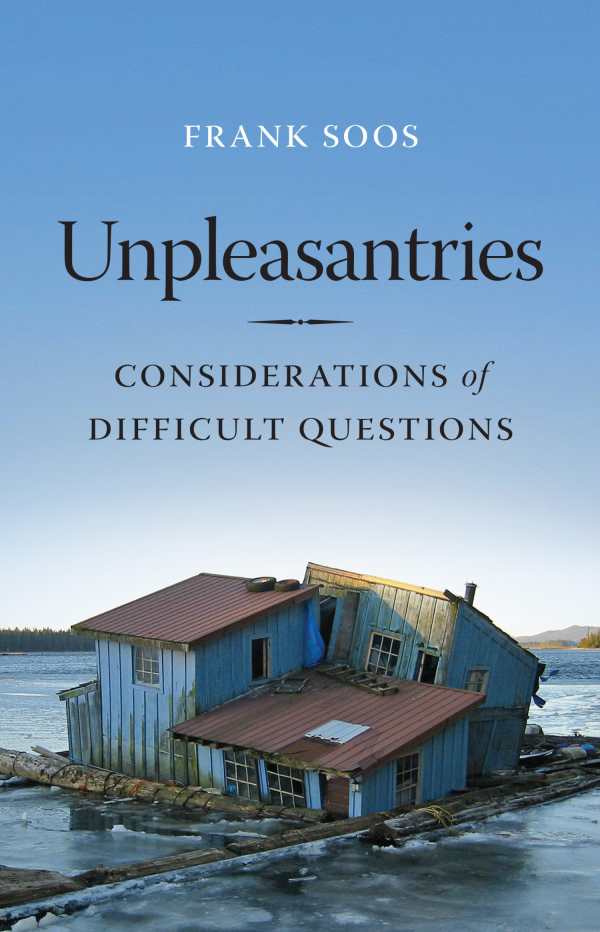Unpleasantries
Considerations of Difficult Questions
Frank Soos points his lance at the windmills of the human condition and offers some solace.
In Unpleasantries, Frank Soos presents a self-consciously messy collection of essays—essays being, he says, a naturally messy form of writing. These works are enjoyable, are worth pondering, and invite head-scratching responses.
Like his essays, Soos acknowledges that he is a “messy guy.” Through this literary form, he finds himself able to explore his life, and his relationships with people and animals, comfortably. The text declares that Soos has lived a good life, though its events are related through dark essays in which painful lessons are often the best way to learn.
The text revels in its chaotic medium, characterized by a nonlinear style and a resistance to closure. Readers used to reading neatly tied-up endings won’t necessarily find them here—which is not to say that they’ll be disappointed by what does arise.
These essays careen from one story to another, as with a jokester who says, “Hey, have you heard this one?” then interrupts his own story to go off on some tangent. Indeed, one essay is built around a racially tinged joke and a second raunchy one, both told by his uncles. These stories are springboards for anecdotes of the author’s childhood in Pocahontas, Virginia, a small, decaying coal-mining hamlet, and relate how African Americans were tolerated but not accepted, while also describing the misogynistic social rules that governed women’s lives. Once readers adjust to abrupt shifts between locales or topics, they can become engaged in the essays and may likely relate to the experiences Soos shares.
Essays juxtapose Soos’s rural Virginia childhood with his years in Alaska, where he encounters deaths—one nearly being his own—divorce, and the natural beauty and ruggedness that appeal to his loner side. Death, especially, is a prominent theme throughout, including that of his father, a young uncle, a former student, and a fellow teacher (who was the son of Sylvia Plath and Ted Hughes). Soos and readers his age likely spend an increasing amount of time pondering death. These essays challenge the reader to accept its inevitability of as part of life.
The author’s writing, like that of his inspirations Alice Munro and Michel de Montaigne, flows gracefully and clearly. He points his lance at the windmills of the human condition and offers some solace for those coming to terms with age, loss, the past, and the future.
Reviewed by
Karl Helicher
Disclosure: This article is not an endorsement, but a review. The publisher of this book provided free copies of the book to have their book reviewed by a professional reviewer. No fee was paid by the publisher for this review. Foreword Reviews only recommends books that we love. Foreword Magazine, Inc. is disclosing this in accordance with the Federal Trade Commission’s 16 CFR, Part 255.

